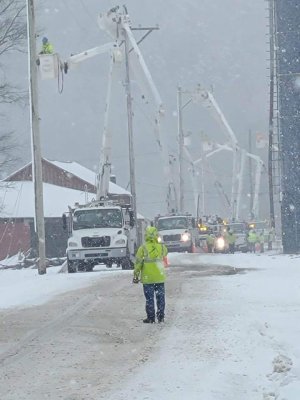The interconnectiveness of the multifaceted skills we develop in the brain never ceases to amaze me.
I'm roughly fifty pages of hand written notes on Executive Functions and how they relate to the growth and regression in skill application depending on where the individual is in their life progression.
I had initially dived into researching Executive Cognition as a means to continue to understand Dad's regression through his dementia/psychosis journey. My first thought was that since we train our toddlers, (knowingly or unknowingly), to build their executive cognition skill over time so that by the time they reach adolescence they have formed the ability to choose to use them independently, why then would it not make perfect sense that as an elder sinks deeper into dementia those skills would be lost over time and this is the root of why these individuals seem more and more childlike.
I've noticed that just as some of the children whose lives I've been part of, be it neices and nephews or babysitting for their parents, when frustrated or angry these kids act up and often lash out because they have not yet learned the rational approach to problem solving and emotional reaction.
I've learned through past experience of traumatic brain injury and working to heal and overcome the brain damage associated with that. The prefrontal cortex forms critical interconnections with deeper brain structures that control threat response and stress reactions. The docs labeled me with PTSD. I asked why at the time...learning it was from my reactions to every day stressor that 'normal' individuals may shrug off and roll with as a minor hiccup in their day. Long exposure to threatening...or perceived as threatening situations can and does compromise the development and deployment of executive function skill. Yet, well developed capabilities in these skills help children as well as adults manage stress more effectively.
The reverse is true with older individuals and dementia as their executive function access declines and they need more and more support in these areas. I.e., Focusing ability (they develop problems paying attention), managing emotions, completing tasks, communicating wants and needs verbally, retaining and using new information, controlling impulses, making plans and goal setting, direct/redirect attention to make deliberate choices, capacity to inhibit responses that are inappropriate to the situation.
My intervention with Dad was to set up the framework...which I've since learned that education professionals call it "scaffolding"...by establishing a routine, providing cues, and breaking big tasks into smaller chunks for him as a means for his keeping as much independence as possible.
Scaffolding used here is along the same lines as what builders use to erect a building. A coach uses activities to support the emergence of executive skill functioning that the individual can practice and perform on their own in much the same way that construction workers remove the scaffolding once the building itself can support them. Over time, the individual can organize themselves and get their daily tasks done without constant reminders and redirection. The reverse is true for Dad and other older individuals with/without dementia as they struggle with the brains decline.
In addition to other functions the primary function of COGNITIVE FLEXIBILITY seems in Dad's case to be the most lost to him.
Cognitive Flexibility is the capacity to nimbly 'switch gears' and adjust to changing demands, priorities, and/or perspectives. Cognitive Flexibility enables us to catch mistakes and fix them, to revise our ways of doing things in light of new information and to consider something from a fresh perspective.
"To think outside the box."
Cognitive or Mental Flexibility enables us to apply different rules to different settings-saying one thing in a trusted abd private setting, yet, saying something quite different in a public context, i.e. staff meeting vs lunch with a friend. This is called "shifting information dialog" as not to hurt another's feelings.
Teaching a skill means operating directly on the behavior of concern, in Dad's instance, a missing or weakened executive skill that may be developed or absent entirely. I believe this is a door to understanding that dementia is indeed a form of Adult Attention Deficit Disorder. My ATBI, acquired traumatic brain injury in 1988 can prove my own case of yes we can rebuild damage in the brain. I've come a long, long way from my 21-year old mindset to my now 55-year old behavioral mindset. (More about that another post.)
The take away is this: If we can routinely test our children for a variety of deficits in their cognitive function make up, why not then can we inquire with our elders to determine their regressive stage, aka decline, in relation to were they ever taught as children and adolescent stage what Executive Function is and how to build them as they employ them in daily life?
Similarly, with our young folks who have been harnessed with the labels of AADD, or AADHD ... are they disordered or simply unaware of their ability to develop their executive skill banks?





